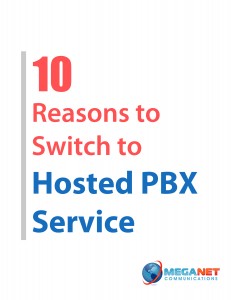Voice Over IP is one of the fastest growing Internet-based services, and for many great reasons. It’s easy to set up, easy to use, easy to expand, and most of all it saves costs over traditional telephone service.
 The only real requirement for using VoIP is a quality Internet connection. Home users, or small businesses, can get by with a decent DSL connection. Small to medium businesses can use T1 or cable, while heavy users would be better served with options like Metro Ethernet or Ethernet over Copper.
The only real requirement for using VoIP is a quality Internet connection. Home users, or small businesses, can get by with a decent DSL connection. Small to medium businesses can use T1 or cable, while heavy users would be better served with options like Metro Ethernet or Ethernet over Copper.
While VoIP relies on the company’s Internet connection to remain up and running, one of the first questions we hear from potential VoIP users is almost always this:
What happens to my phones if my Internet connection goes down?
It’s a very valid question to ask – after all, if your business’s phones rely on your Internet connection for dialtone, it definitely stands to reason that if you lose your Internet, you’ll lose your dialtone as well. Even if your Internet connection is up, and there’s a problem with it, your phone service may not work properly if your company is using VoIP.
So the big question is, how do companies make sure their communications aren’t dead in the water if their Internet connection goes down? It could drop for any number of reasons – an Internet provider or carrier issue, a problem with the local loop wiring, an accident that takes out a pole or two, a piece of local office network equipment could fail… there’s any number of issues that could cause the Internet (and subsequently the VoIP service) to drop.
On a local level, businesses that are using a newer PBX, such as a hybrid PBX, can opt to have a few backup copper lines (also known as POTS lines) installed right into their phone system. This would allow employees to make outbound calls, albeit with much lower capacity as the number of outbound calls would only equal the total number of backup phone lines the company had. On the inbound side, the VoIP provider would need to re-route the inbound phone numbers to the numbers of those POTS lines. Some carriers can do that automatically, while some may need to do it manually. In either case, having some backup POTS lines in case the Internet goes down if your company uses a hybrid PBX can be beneficial. Of course, if a car accident wipes out the phone pole in front of your business… odds are your Internet AND backup phone lines will be down. That’s definitely a worst-case scenario, but one that does happen from time to time (especially in inclement weather here in Massachusetts).
On a provider/carrier level, many VoIP providers (including MegaNet) can build failover options into each customer’s setup; those failover options exist right on the provider’s phone switches. In order for VoIP to work, the VoIP provider’s switch normally communicates with some device on the customer’s end – it might be an Integrated Access Device, a VoIP router, or a set of digital VoIP phones. If the switch prepares to hand an inbound call to the customer, and it can’t reach whatever device it’s expecting, it can automatically hand over that phone call to a different device or phone number. With nearly everyone carrying a cell phone nowadays, the most common option is to route inbound calls to the business to someone’s cell phone (or a number of cell phones). This way, the majority of inbound calls can still be answered and responded to.
Businesses that opt to use Hosted PBX can get another level of failover, where every single individual extension on their phone system can have it’s own failover. Because Hosted PBX maintains the company’s main menu, voicemails, and options on the provider’s equipment, if a business’s local office loses their power or Internet connection, inbound callers will still hear that company’s main phone greeting and can access menu options because they’re not hosted at the location that’s lost power/Internet. If they dial an employee’s extension, the Hosted PBX server can automatically route that call to the individual user’s cell phone since the VoIP switch at the provider can’t locate the digital VoIP phone assigned to that specific extension.
Communication services are so critical to businesses – they’re their lifeline to clients and vendors. Companies who are considering the cost savings and advantages of VoIP shouldn’t be concerned over potential outages due to Internet or power, as many times the built in failover offered by the VoIP provider will more than sufficiently keep those phone calls going in the event of an outage.
For more information about how Hosted PBX can benefit your business, download our free eBook “10 Reasons To Switch To Hosted PBX Service“. In it you’ll learn more about the various features and options Hosted PBX offers to help increase communications and productivity for any organization.

